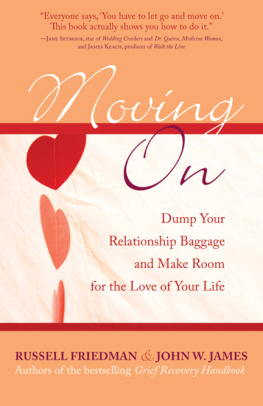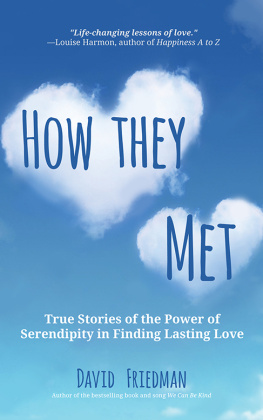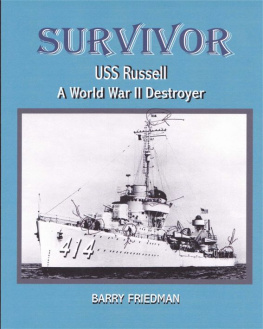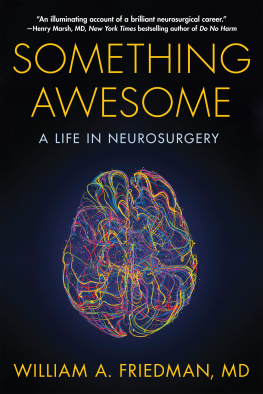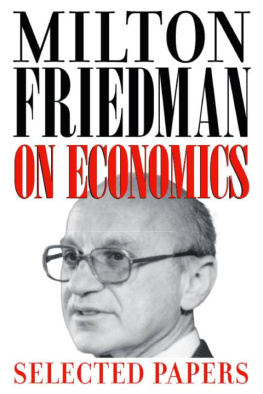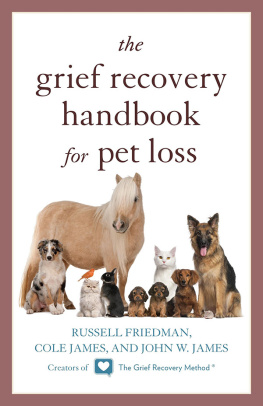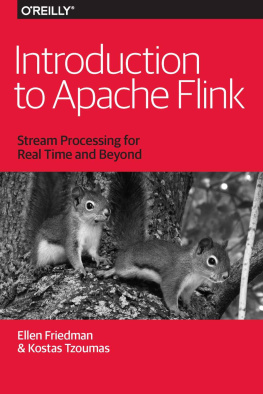ACKNOWLEDGMENTS
W e would have to go into the phone book of every city in the United States to find all the people we need to acknowledge. Then wed have to do the same in Europe, the Middle East, and Asia to find the many others who have opened their hearts to let us help them. We want to thank all of those courageous souls. They were able to show up at our workshops and trainings and trust us to guide them.
There are some individuals we need to thank for their contributions. First and foremost, we thank our agent and friend, Jennifer Unter. We also thank P. J. Dempsey and Matt Harper for getting this project off the ground.
We thank Eric Cline, our partner and friend in Canada. And we thank Anders Magnusson, our partner and friend in Sweden.
Over the years, weve added others who expand our ability to help as many broken hearts as possible. We want to acknowledge each of them individually: Steve Moeller, Nancy Stutz-Martin, Debi Frankle, Elaine Henderson, and Lois Hall.
As with most organizations, theres usually one central person who makes the whole thing work. For us, that person is Lisa Laughlin, who single-handedly keeps us in the pink. North Carolina gave us one of its finest exports, Rhoda Cerny, who helps us help the broken hearts that call here for guidance every day. We also want to acknowledge Esther Walker, who walked us through some of the trying times as we worked to make this book as good as it can be.
Thank you.
Russell and John
Sherman Oaks, California
CHAPTER
ONE
EVERYONE HAS
EMOTIONAL BAGGAGE,
EVEN YOU
A t almost every social gathering, you will hear conversations about somebodys breakup or divorce. The question is always asked, Did he have a lot of baggage? Without exception the answer is yes. What usually follows is an attempt to commiserate with the aggrieved party: Dont feel bad, youll do better next time and other such clichs. The attempt to soothe is always well intentioned but rarely helpful.
While the question about the other persons baggage may be reasonable, the blind spot exists in the absence of the more important question that is hardly ever asked. And how much baggage did you bring to the relationship? Admittedly, it sounds like a cruel question. Yet it is the only question that can force anyone to identify and jettison their own excess cargo before attempting to take flight in a long-term committed relationship.
Most of us understand what is meant when the word baggage is used in the context of a failed relationship. When we expand it and call it emotional baggage, it becomes a little clearer. Now we need to define it even more so we can get you into the actions that will lead you from the problem to the solution.
Emotional baggage is many things:
- the general misinformation we have all learned about how to deal with loss
- the specific misinformation we acquire about our emotional reactions to romantic relationships that have ended
- the short-term habits we develop in reaction to romantic endings, which become long-term and get dragged into future relationships
- the accumulation of undelivered emotional communications we store after romantic relationships end
Since you cant deal with anybodys baggage but your own, were going to start with you and yours.
What You Learn Is What You Do
We start learning about the painful feelings of loss very early in life, as soon as things are taken away from us. It does not feel good when the things we have become attached to, like stuffed animal toys or baby blankets, get taken away. While that might seem like an illogical starting point for a book about romantic relationships, it is nonetheless exactly where we must begin. These early losses, and the guidance of the people around us, dictate how we react later when our first romantic relationship ends.
Emotional Baggage Is Acquired
Assume for a moment that when you were born you carried no baggage of any kind. You were not carrying any incorrect information or any incomplete relationships into the new adventure of life. You could react to life as it occurred, in the moment. If something delighted you, you laughed. Once that feeling ended you were ready to participate in the next emotional experience that came along. Lets say that the next experience was a sad one. No problem, you cried. Again, in a short time, the crying was done. You stored nothing and were ready to take on lifes next event.
In either case, happy or sad, you notified the world around you as to exactly how you felt. It was a perfect system. Think about it. If no feelings were stored, then no emotional baggage was created. Its likely that for the first few years of your life you processed all emotions naturally, in the moment you had them. But as you moved from infancy to toddlerhood, you began to learn that communicating all of your feelings, happy or sad, was no longer accepted and rewarded. You were being told and shown that some feelings were not okay. The ones that were off limits were sad or negative. The display of tears that often accompanies those feelings was equally not supported. Most people remember a line like this from their childhood: If youre going to cry, go to your room. We doubt that you ever heard, If youre going to be happy, go to your room.
The idea that happy feelings are okay and sad ones are not puts children in conflict with their own natural reactions to life events. It is that overriding idea that makes it difficult for us to deal with the emotions we feel when something sad happens. We are going to help you look at all the information that you learned about how to deal with your emotions to see which must be discarded. Then you can realign yourself with what is emotionally truthful for you. Dont worry, we arent going to encourage you to revert to acting like a twoyear-old. There are honest and open ways to communicate how you feel without becoming infantile. We are confident that as you begin to recognize the general ideas we mention, you will find within them the specific ideas that have kept you stuck.
How Our Minds Store Information
The human mind is the ultimate hard drive. It is the most sophisticated storage device that exists. From the moment we draw our first breath, our mind engages. It observes everything we see, taste, touch, hear, or smell. It misses nothing. It forgets nothing. Many people find this hard to believe, yet it is true. Heres an example: Almost everybodys childhood memories include comments like, Clean up your plate, children are starving in [name a country]. This powerful message usually came from our parents. We took the idea that we had to eat everything on our plates as a piece of absolute truth because our parents said it was so. As we got older, some of us learned to modify that message and found our own healthy eating habits. Sadly, many have not.
Heres another example: Do you remember a smell that you associate with your grandmothers house? Maybe the smell of a cedar-lined closet jumps to mind. The memory was embedded when you were very young and has been carried forward for a long time. Its still there now, though you may not have thought about it consciously for many years. Even so, you probably had no trouble finding it. How many years has it been there? Just remember that your mind never forgets. All it took was the stimulus of a question for you to search for and remember that smell.
How We Learn
Experts suggest that by the age of three 75 percent of the basic information that we will use to run our lives has been observed, coded, and recorded. The information is stored with an attached intensity based on the source of the information. The most powerful early influences are usually mom and dad and other immediate family members. The same experts indicate that during the next ten to twelve years teachers, classmates, movies, television programs, song lyrics, magazine articles, and other sources contribute another 20 percent to the ideas that we learn and use. By the time we reach adolescence and our first romantic relationship, 95 percent of the basic information we will use to interpret and operate our lives is already in place.

